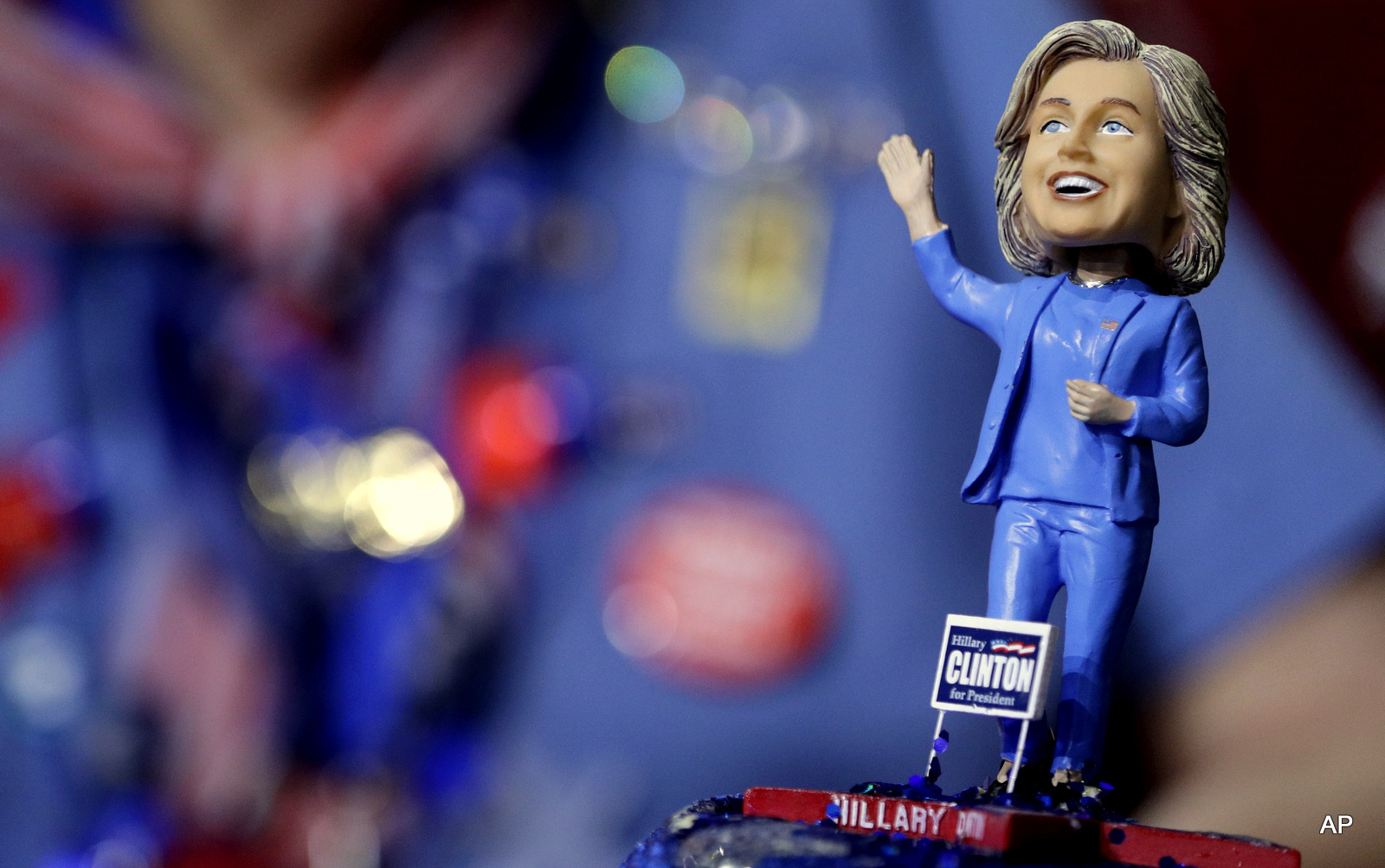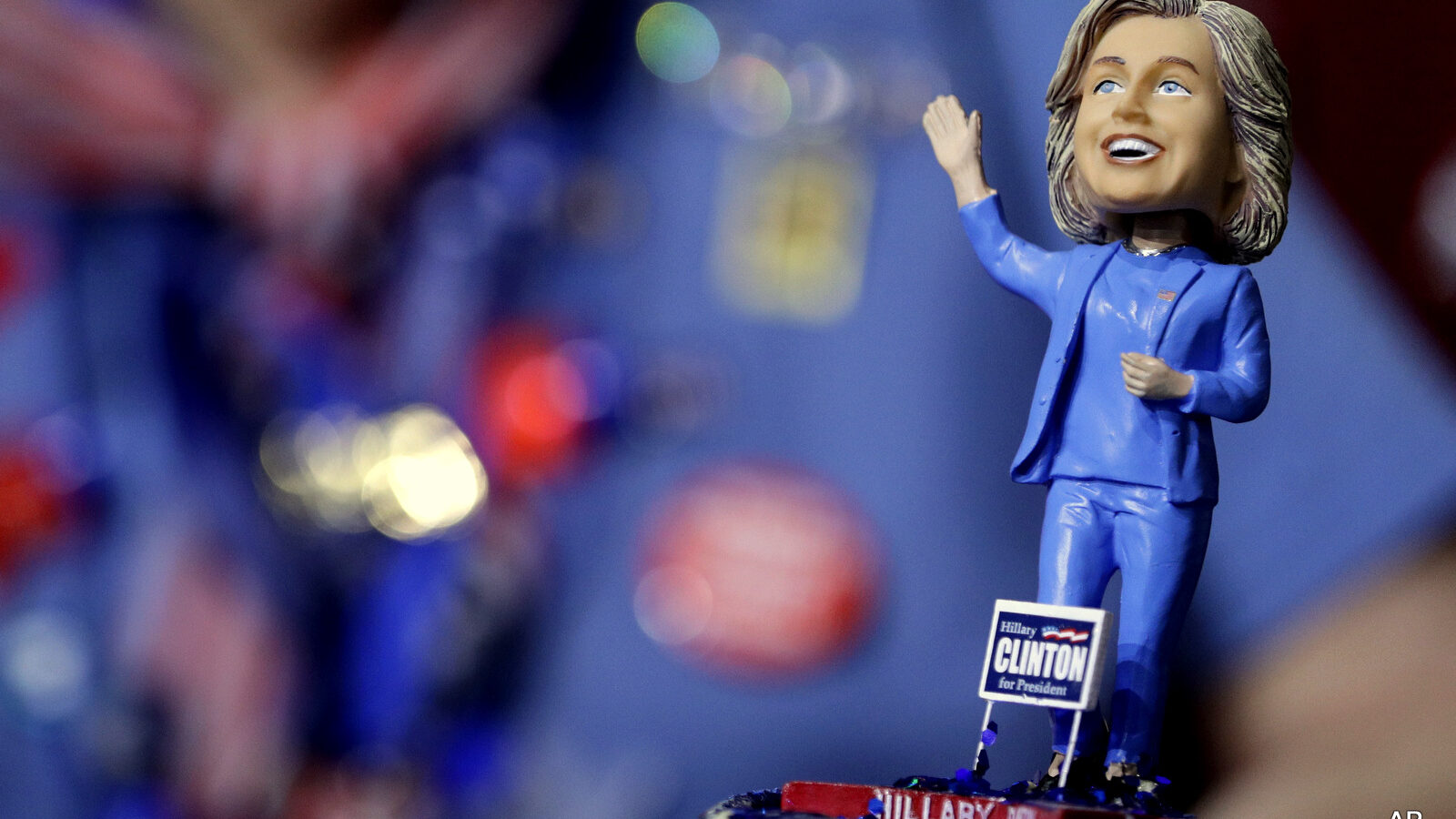
MINNEAPOLIS — (Analysis) WikiLeaks’ release of 20,000 emails from some of the top brass of the Democratic National Committee reveal how the Hillary Clinton campaign colluded with the party’s governing body to smear and undercut Bernie Sanders and his supporters.
Now, perhaps in an attempt to discredit WikiLeaks and distract from the content of those emails, the Clinton campaign is accusing hackers with ties to Russian President Vladimir Putin of stealing the emails and publishing them.
Speaking to CNN’s State of the Union on Sunday, Robby Mook, Clinton’s campaign manager, said that “experts are telling us that Russian state actors broke into the DNC, stole these emails. And other experts are now saying that the Russians are releasing these emails for the purpose of actually helping Donald Trump.”
When asked who these “experts” are, though, Mook declined to name names.
WikiLeaks, which is no stranger to ad hominem attacks to discredit their work and challenge their credibility, shot back on Twitter on Monday.
Clinton campaign pushing lame conspiracy smear that we are Russian agents. Last time we were Mossad. Get it right. https://t.co/WrTt175zfe
— WikiLeaks (@wikileaks) July 24, 2016
Assange: ‘It’s simply speculation’
On Sunday, Defense One, a security and national defense news and analysis website produced by the neoliberal Government Executive Media Group, followed up on the Clinton camp’s allegations that “Putin did it.”
In the article titled, “How Putin Weaponized Wikileaks to Influence the Election of an American President,” Patrick Tucker admits that the leaked emails expose “Washington’s campaign monster for what it is,” but asks his readers to “leave aside the purported content of the Wikileaks data dump” and “consider the source.”
“This has all the hallmarks of tradecraft. The only rationale to release such data from the Russian bulletproof host was to empower one candidate against another. The Cold War is alive and well,” Tom Kellerman, the CEO of the cybersecurity firm Strategic Cyber Ventures, told Tucker, backing up the author’s assertions that “considerable evidence shows that the Wikileaks dump was an orchestrated act by the Russian government.”
Like Clinton, Tucker alleges that the recent WikiLeaks dump of DNC emails bears some similarities to a breach of the DNC’s system last month, in which hackers stole research files on Donald Trump, the Republican Party’s presidential nominee. In addition to the opposition research, hackers were able to read all chat and email traffic.
The Guardian reported on June 14:
“Crowdstrike [the cybersecurity firm hired by the DNC to investigate the breach last month] said it actually found two different hacking groups going after the Trump files. The company believes the hackers that got in last summer might be linked to Russia’s federal security service, known as FSB, while another team that got into the system in April are probably linked to Russian military intelligence.”
CrowdStrike alleged in a June 15 blog post that two separate Russian intelligence groups — COZY BEAR and FANCY BEAR — had gained access to the DNC network. The intrusion of COZY BEAR (also known as CozyDuke or APT 29) dated back to the summer of 2015, while FANCY BEAR (also known as Sofacy or APT 28) breached the network in April.
The cybersecurity firm offered some background on these hackers:
“We’ve had lots of experience with both of these actors attempting to target our customers in the past and know them well. In fact, our team considers them some of the best adversaries out of all the numerous nation-state, criminal and hacktivist/terrorist groups we encounter on a daily basis. … Both adversaries engage in extensive political and economic espionage for the benefit of the government of the Russian Federation and are believed to be closely linked to the Russian government’s powerful and highly capable intelligence services.”
Meanwhile, in his own attempts to draw a line between the DNC hackers and the Russian government, Tucker cites a 2014 report from the cybersecurity firm FireEye, which noted that the hackers appeared not to work on Russian holidays and their level of sophistication as proof of a Kremlin connection. He also points to U.S. officials who said the hackers “appear” to be tied to the Russian government — a claim Kremlin spokesman Dmitry Peskov flatly denied.
The author of this Defense One article asked his readers to consider the source — and we will.
Kellerman, CEO of Strategic Cyber Ventures, alleges that the WikiLeaks’ DNC email leak is tied to Putin. It’s worth noting, though, that his own firm is made up of former executives from the U.S. Computer Emergency Readiness Team and Booz Allen Hamilton, where NSA whistleblower Edward Snowden once worked. Indeed, many private cyber security jobs are held by people who used to work in or close to the government.
Ultimately, there’s no conclusive proof that the hackers in either instance were Russian or even tied to the Russian government. The entire case is built upon circumstantial evidence, as cybersecurity analyst and expert Jeffrey Carr noted on June 20 in a piece for Medium titled, “The DNC Breach and the Hijacking of Common Sense.”
In his piece, Carr invites the reader to imagine a shooting in which a Russian-made weapon is left behind. Would that necessarily mean the shooter is Russian, or that the shooter works for the company which manufactured the weapon, or even that the firearm’s designer was the shooter?
“In the physical world of crime investigation, common sense dictates that the perpetrator of a crime may use any weapon and not just one made in the country of his birth, and that the developer or manufacturer of the weapon most likely isn’t the criminal.
And yet, those seemingly crazy assumptions are made every day by cybersecurity companies involved in incident response and threat intelligence.”
On Monday, Julian Assange, founder and editor of WikiLeaks, addressed the swirling speculation on the source of the most recent leaks.
He, like Clinton’s campaign manager, didn’t name names. Speaking to Democracy Now!’s Amy Goodman, Assange said:
“In relation to sourcing, I can say some things. A, we never reveal our sources, obviously. That’s what we pride ourselves on. And we won’t in this case, either. But no one knows who our source is. It’s simply speculation. It’s, I think, interesting and acceptable to speculate who our sources are. But if we’re talking about the DNC, there’s lots of consultants that have access, lots of programmers. And the DNC has been hacked dozens and dozens of times. Even according to its own reports, it had been hacked extensively over the last few years. And the dates of the emails that we published are significantly after all, or all but one—it’s not clear—of the hacking allegations that the DNC says have occurred.”
DNC leaks reveal Clinton smears her opponents
Even as the Clinton campaign and the DNC trot out “experts” to tie the cybersecurity breaches to the Kremlin, the trove of DNC emails hosted by WikiLeaks show that Clinton has been using her media influence for the last year to bring down her strongest opponent: Bernie Sanders.
Not only did WikiLeaks set off a storm in political and journalistic circles over the weekend when it released 20,000 DNC emails, it also confirmed what many Sanders’ supporters had already suspected: The DNC was favorable toward Hillary Clinton, and top DNC officials were working closely with the Clinton campaign to smear Sanders and his supporters.
Most damningly, the WikiLeaks email database shows that the DNC, which is supposed to be neutral during a primary campaign, was being influenced by major donors favorable to Clinton — including many with questionable backgrounds.
The emails expose collusion among Clinton’s campaign staff, top media pundits and top DNC staff to sabotage Sanders’ presidential bid through smear campaigns and “troll” armies. They also show how Clinton has been using her media sway at major news networks like CNN to paint Sanders’ supporters as violent, reveal that a Clinton super PAC was “paying young voters to push back online on Sanders supporters,” and expose media appearances plotted to benefit the Clinton campaign.
As the DNC’s treatment of Sanders and his campaign — non-neutral, at best, and deliberately damaging, at worst — floated to the surface, public outrage followed, prompting Debbie Wasserman Schultz to announce on Sunday that she will resign her role as DNC chair following this week’s Democratic National Convention in Philadelphia.
Sanders’ campaign manager Jeff Weaver said the campaign was “disappointed” by the information laid bare by the leak and demanded that someone be held accountable.
Weaver told ABC News on Saturday that the emails revealed misconduct at the highest levels of the DNC, and would “reinforce” the notion that the party’s governing body had “its fingers on the scale.”
Another member of Sanders’ staff, Rania Batrice, told ABC News:
“Everything our fans have been saying — and they were beaten down for and called conspiracy theorists — and now it’s in black and white.”
Facebook censors WikiLeaks #DNCLeaks
While the latest email dump has certainly clarified how far Clinton will go to silence and discredit her opponents, and how complicit the DNC has been in these efforts, it also showcased the war for transparency that WikiLeaks is still fighting.
On Saturday, WikiLeaks accused Facebook of censorship and offered its Twitter followers an “workaround” link to the email archives that could be posted on the social media giant’s platforms:
For those facing censorship on Facebook etc when trying to post links directly to WikiLeaks #DNCLeak try using https://t.co/2b9Kn1RITr
— WikiLeaks (@wikileaks) July 24, 2016
The accusations of deliberate censorship by Facebook come on the heels of a recent controversy in which former Facebook employees admitted to censoring trending news stories from conservative sites.
William Turton, writing for Gizmodo on Monday, reported: “The block seems to be the result of another algorithm accident that may have incorrectly determined the links to be malicious or spam.”
In a statement, Facebook told Gizmodo: “Like other services, our anti-spam systems briefly flagged links to these documents as unsafe. We quickly corrected this error on Saturday evening.”
Yet, as Turton also noted, “Facebook wants to be a source for news, but the company’s algorithm keeps ‘accidentally’ removing or restricting access to news stories on its platform.”


